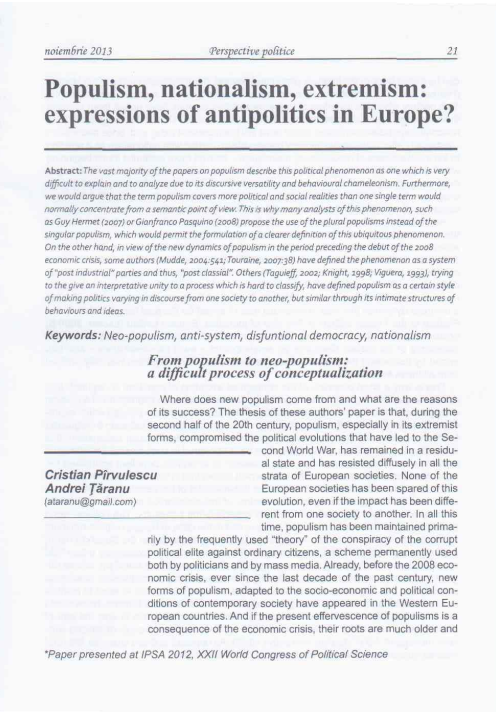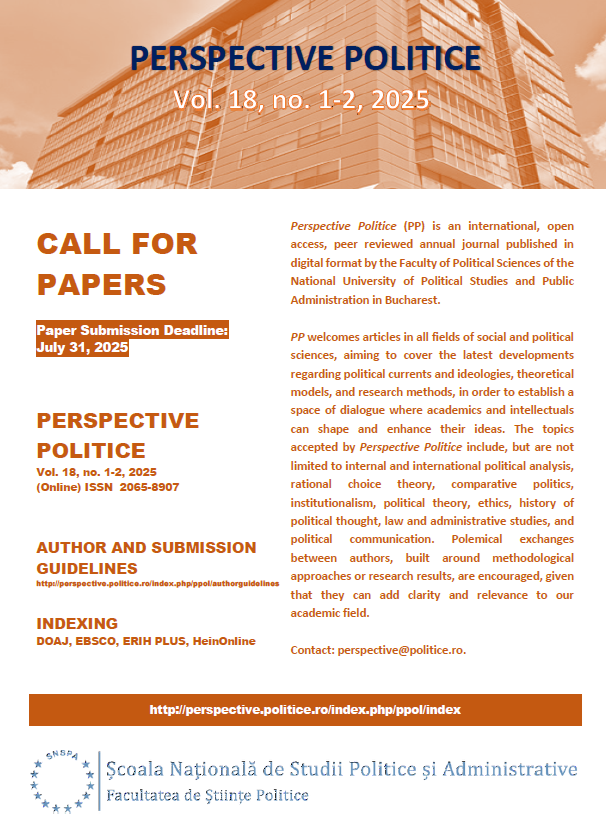Populism, nationalism, extremism: expressions of antipolitics in Europe?
Abstract
The vast majority of the papers on populism describe this political phenomenon as one which is very dificult to explain and to analyze due to its discursive versatility and behavioural chameleonism. Furthermore, we would argue that the term populism covers more political and social realities than one single term would normatly concentrate from a semantic point of view. This is why many analysts of this phenomenon, such as Guy Hermet (2007) or Gianfranco Pasquino(2008) propose the use of the plural populisms instead of the singular populism, which would permit the formulation of a clearer definition of this ubiquitous phenomenon. On the other hand. in view of the new dynamics of populism in the period preceding the debut of the 2008 economic crisis, some authors (Mudde, 2004:541 Tourainie. 2007:38) have defined the phenomenon as a system of "post industrial" parties and thus, "post classical". Others (Taguieff. 2002; Knight, 1998; Viguera, 1993), trying to the give an interpretative unity to a process which is hard to classify, have defined populism as a certain style of making politics varying in discourse from one society to another, but similar through its intimate structures of behaviours and ideas.




